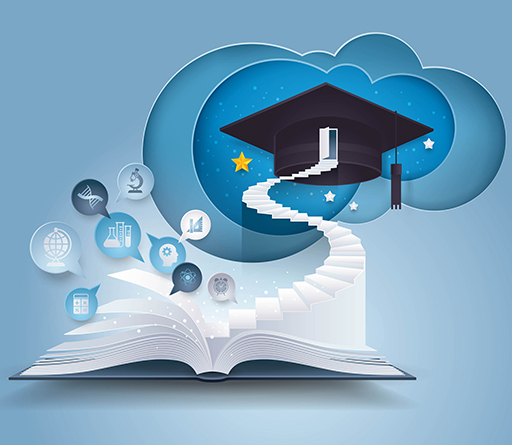
Experiential Learning is a practice of learning by doing. It encourages students to have first-hand experience with the materials, rather than learning through textbooks or lectures. The process of experiential learning involves both self-initiative and self-assessment, so students can benefit from experiential learning opportunities in the classroom.
Vignan, one of the best CBSE schools in Nizampet, Hyderabad believes that students learn in a better way when they are engaged in various educational activities and implement those in actions. Experiential learning preserves a student’s individualism and gives them the freedom to navigate their own path of learning to be independent, confident, and intelligent.
Over the years, experiential learning has proven to have a wide range of benefits that contribute to a child’s overall development. Vignan has listed the reasons why experiential learning is the future of learning.
1. A better grasp of concepts
Students may struggle to grasp concepts that don’t pertain to the real-world environment. With experiential learning, students are given the opportunity to apply their own ideas in a real-world situation where they play an active role.
2. Opportunity to be more creative
Experiential learning is one of the best ways to teach creativity and problem-solving skills. With real-world content available, students learn that there are multiple solutions to challenges, and they are encouraged to seek unique solutions to their hands-on tasks.
3. Have the opportunity to reflect
By incorporating real-time experiences with abstract concepts and the reflecting outcome students engage regions of their brain and make stronger connections with the material. This helps students better understand how the concepts learned can be applied to circumstances.
4. Teaches the value of mistakes
As students engage in hands-on-tasks, they will find that some approaches work better than others. They discard the methods and techniques that don’t work for them, but the act of trying something and then abandoning it becomes a valuable part of the learning process.
5. Accelerates learning
The act of practicing a skill strengthens the neural connections in the brain, making students smarter. Hands-on activities require problem-solving, and decision-making skills. As student engagement increases through these approaches, learning accelerates, and retention improves.
6. Guides toward the future
Most of the experiential learning projects are career-oriented because they are grounded in real-world activities. Through these activities, students discover and develop their skills, aptitudes, and passions that set them on a more defined path to what they want to pursue after graduation.
7. Prepare for adult life
Most experiential learning activities are common in nature, with students working in groups. Through these team activities, students learn to work more effectively together, thus developing a plan of action and capitalizing on the unique strengths of each team member.
With all of the above ways, experiential learning engages students’ emotions while enhancing their knowledge and skills. As the best CBSE school in India, Vignan believes in pioneering in the field of experiential education and setting new trends of education for students to follow.
Want to develop experiential learning in your child? Vignan School is among the top schools of Hyderabad that take an innovative approach to learning and continuously strengthen students’ learning strategies.










